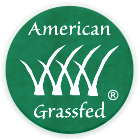CERTIFICATIONS for Health and Farmers
These are the certifications companies sometimes use to ensure organic produce, or pasture raised animals.
Look for these labels when shopping.



USDA Organic
Organic producers use natural processes and materials when developing farming systems—these contribute to soil, crop and livestock nutrition, pest and weed management, attainment of production goals, and conservation of biological diversity.
The application of a set of cultural, biological, and mechanical practices that support the cycling of on-farm resources, promote ecological balance, and conserve biodiversity. These include maintaining or enhancing soil and water quality; conserving wetlands, woodlands, and wildlife; and avoiding use of synthetic fertilizers, sewage sludge, irradiation, and genetic engineering (no GMOs allowed).



Certified Grass Fed Organic Dairy
This is a certification above Organic. It is an independent certification that verifies Organic feed, no grain, only grass extra feed, pastured for a minimum of 150 days/yr, among other qualifications needed. We believe that grass fed and pastured is even better for the animal and the environment and our neighbors than Organic alone. Applies to dairy only.



PCO Certified
100% Grass Fed
In partnership with Organic Plus Trust (OPT), this is a certification above Organic. It is an independent certification that verifies Organic feed, no grain, only grass extra feed, pastured for a minimum of 150 days/yr, among other qualifications needed. We believe that grass fed and pastured is even better for the animal and the environment and our neighbors than Organic alone.



American Grass-fed
An independent certification that verifies animal is born, raised, and finished on open grass pastures. Hay, and other non-grain feeds, may be fed under inclement weather or poor forage quality. While not Organic, it is verified that the animals are not administered antibiotics or hormones unless it is needed for the health and safety of the animal with oversight from veterinarian and audit.



non-GMO verified
Genetically Modified Organism (GMO) products have been modified by a company for enhanced characteristics. Sometimes this is greater resistance to drought. Often it is greater resistance to chemical pesticides and herbicides.
In order for a product to be Non-GMO Project Verified, its inputs must be evaluated for compliance with the standard for no genetic modifications of the organism being evaluated.




Environmental Working Group
The Dirty Dozen - a list of the 12 highest pesticide contaminated foods
The Clean Fifteen - a list of the least pesticide contaminated foods
EWG conducts research on everything from food safety to community water contamination. They are a great resource for your family's and your neighbor's health.
"The Environmental Working Group’s mission is to empower people to live healthier lives in a healthier environment. With breakthrough research and education, we drive consumer choice and civic action."




Think Dirty
If you want to know what chemicals are in the products you put on your skin and cleaners you use around the house, this is a fantastic resources. They provide ingredients lists and give each ingredient a grade that shows its potential harm.
"Think Dirty® empowers and educates the consumer on the cosmetics industry by allowing them to make an informed decision on what products to purchase."

Safer Choice - EPA

Safer Choice - EPA

Safer Choice - EPA

Safer Choice - EPA
EPA Safer Choice
Look for this label on cleaners, soaps, and disinfectants. We have found this label on many Seventh Generation Products.
Safer Choice helps consumers, businesses, and purchasers find products that perform and are safer for human health and the environment.




BPA-free
(Bisphenol A)
This label shows which products have been created without BPA (a hormone disruptor). However, this label does not mean that the substitute compound is safe. Many companies that use the BPA-free label just substitute a different compound such as BPS or biphenyl sulfone or triphenyl phosphate. These substitutes are either known to be toxic or haven't been tested yet. This label doesn't mean much.